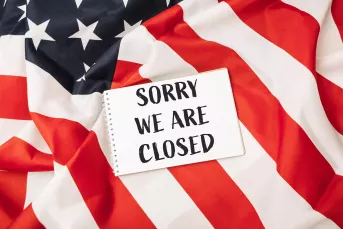
How to Find Help to Pay Medical Bills
According to the Kaiser Family Foundation (KFF), 14 million Americans in the U.S. have over $1,000 in medical debt — and many owe more than $10,000. This kind of financial burden can put significant stress on any household, but there are ways to manage it. Finding the right support and exploring options for financial assistance can help ease the pressure and keep you moving forward.
Medical bills, whether from a sudden accident or ongoing healthcare, can quickly add up and become overwhelming. Here's how to find help.
Where to find help paying for medical bills
There are several ways to get help paying bills from|} 'p hospitals, clinics, and other healthcare facilities.
Financial assistance programs
Because unpaid medical bills are common, there are numerous financial assistance programs for medical debt. The Affordable Care Act mandates that every hospital and healthcare facility give patients access to these programs and have a Financial Assistance Policy.
In most cases, government and local financial assistance programs help people based on their needs and income level. Financial assistance policies vary by state and hospital but are typically available to people who are underinsured or uninsured.
How to seek financial assistance for medical bills
- Ask your hospital or healthcare facility for a copy of their Financial Assistance Policy.
- If you think you qualify, fill out the financial assistance application.
- Be aware that these applications can be time-consuming and must be completed accurately, or you may be disqualified.
- You’ll need to provide information regarding your income, such as pay stubs, tax statements, bank statements, or other proof of income documents.
- If you have questions about how to fill out the form, ask to speak to a patient advocate.
- After you fill out and submit the application, follow up often to find out how much assistance you’re receiving.
- In the meantime, ask your medical provider not to send your debt to collections pending your application.
Local charities and nonprofits organizations
You can also seek financial support from regional organizations, including places of worship and local nonprofit chapters. In fact, you can find charities and nonprofits at the national, state, and local levels willing to help with medical bills.
As with other financial assistance programs, it’s important to be accurate and transparent when filling out your application, as charities can be picky about who they help.
Emergency loans
Emergency loans can be a good option for paying all or part of your medical bills. You’ll still need to repay the loan, of course, so be sure to choose the type of loan that best suits your situation and budget.
For example:
- Payday Loans are ideal for small medical bills or making a monthly payment on larger ones.
- Installment Loans can be useful for paying off larger medical bills.
- Title Loans are a quick source of cash for medical expenses if you own a car, van, or other type of vehicle that you can use as collateral
- Personal Line of Credit can be perfect for situations where you have ongoing medical bills and related expenses rather than a single payment.
Can you negotiate your medical bill payment?
If you can’t get enough money from financial assistance programs or charities, you may need to negotiate your medical bill payments.
Ask to set up a minimum monthly payment plan that isn’t too overwhelming for your budget. Another option is to see if your provider will settle your bill for less money if you pay a lump sum.
What happens if you don’t pay medical bills?
If your insurance company doesn’t pay for certain medical bills, you are responsible for covering those costs. If you fail to pay or set up a payment plan with your healthcare provider, here’s what often happens:
- The medical services provider will send you warnings and notices by mail stating that you have an outstanding balance.
- They may call or text you if they don’t hear from you after the mailed notices.
- If you don’t pay the balance, set up a payment plan, or have your insurance company place a hold on the bill, your healthcare provider will send the account to collections.
- If your medical bills are sent to collections, interest will continue to accrue on your unpaid balances and your credit score will take a hit.
➢RELATED: How to Fix Your Credit Score
Help with medical bills in collections
While they have to abide by the law, debt collection agencies are far less patient and lenient than healthcare providers. Their only goal is to get you to pay your bills. They’ll call, text, mail documentation, and email you until they get the money you owe.
Luckily, you can still seek help with medical bills that are in collections. First, call the collections agency and ask them to put your bill on hold while you seek financial assistance. Next, you can apply for a loan, raise money on your own, or use another method above to pay your outstanding medical bills.
Tips to get fast cash to pay for a medical bill
If you’ve exhausted all your options and you can’t get enough help paying medical or veterinary bills, here are a few ways to raise the money on your own.
Sell unwanted items. Selling items you no longer use or need is a great way to raise money in a hurry. You can sell items on Facebook Marketplace, Craigslist, eBay, and other secondhand and auction websites.
You can also host a garage or yard sale and sell as many things as possible. From clothing to electronics to vehicles and sports equipment, your trash may be another person’s treasure.
Ask an organization to help. In addition to churches and assistance programs, you can also ask other organizations for assistance. You can visit your state’s Department of Health Services for a list of official organizations offering aid and review their criteria to see if you qualify.
You’ll need to do some research and determine which organizations are an option, as many of them are condition-specific.
Throw a fundraiser. If you have a close group of friends or family members, they may throw a fundraiser on your behalf. A fundraiser is a great way to enlist the help of others to raise money on your behalf. They’re unique in that they rely on the generosity of others while also giving them something in return.
One example of a fundraiser is hosting a basketball, volleyball, golf, or other sports tournament. Require an entry fee of $250 per team, with the winning team getting a $500 reward for winning. If your fundraiser is something fun and you do a good job of spreading the word, you can potentially raise thousands of dollars overnight.
Seek credit counseling. If you’re overwhelmed and don’t know where to turn for help with medical bills, contact a nonprofit credit counseling agency. They’ll help you explore all viable options and come up with the best solution for paying medical bills without going bankrupt.
Credit counselors can even set up an account with your healthcare provider and schedule your monthly payments.
Start a crowdfunding campaign. If you don’t have the means or support system to throw a fundraiser in person, you can also start an online crowdfunding campaign. There are several great websites and platforms where you can start crowdfunding campaigns, such as GoFundMe, Caring Bridge, and more.
The nice thing about crowdfunding campaigns is you don’t have to provide extensive documentation and sensitive financial information. Instead, you simply share your need with the public and rely on the goodness of others for financial support.
MORE ON GETTING HELP PAYING BILLS
➢Get Help Paying Your Utility Bill
Notice: Information provided in this article is for informational purposes only. Consult your attorney or financial advisor about your financial circumstances.


